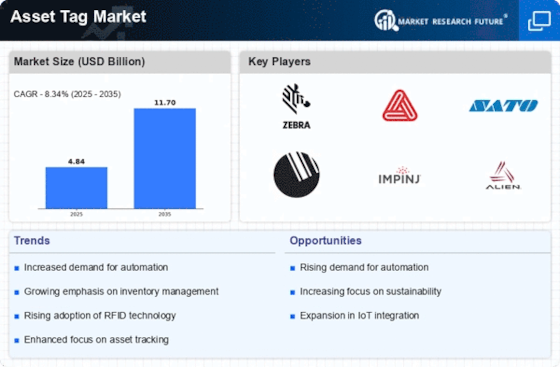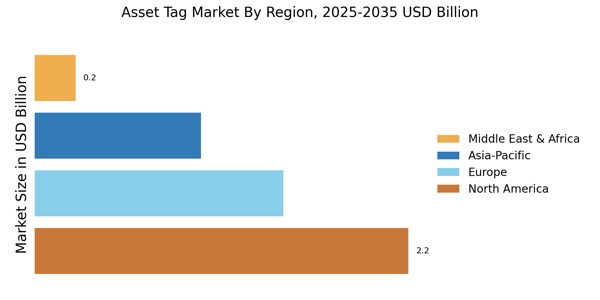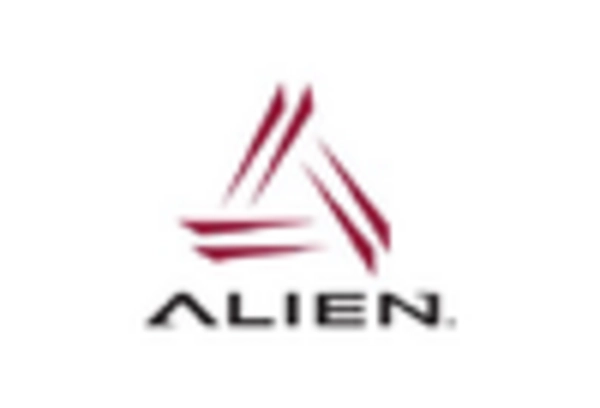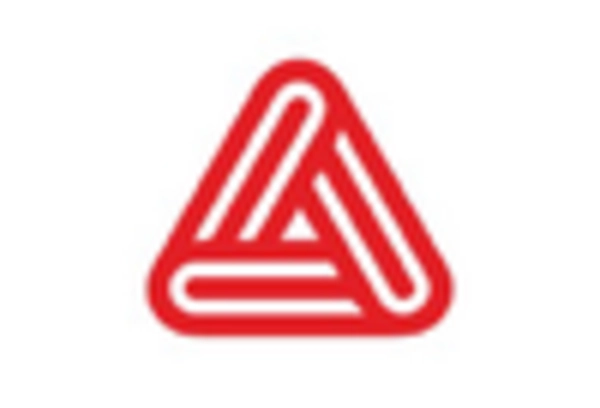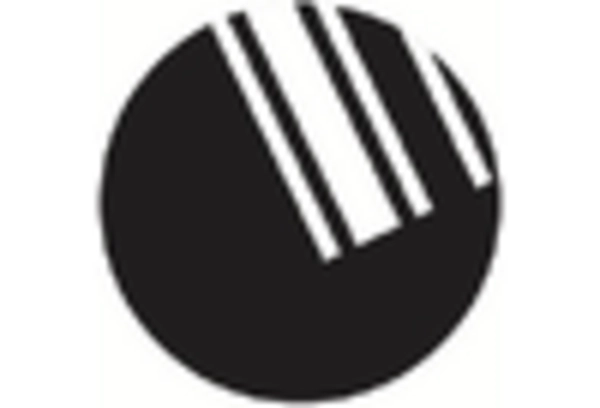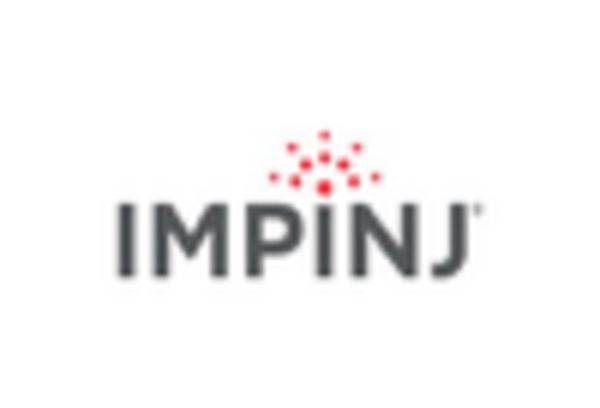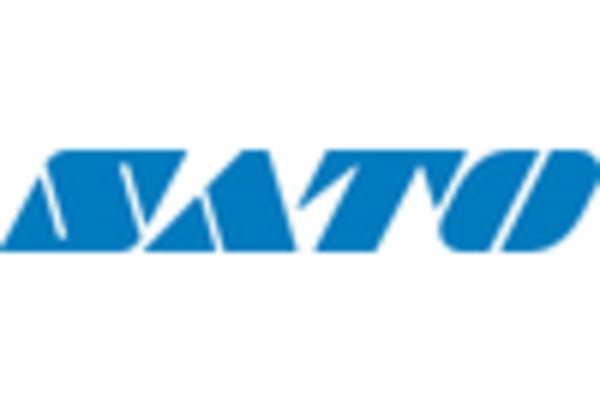Growth of E-commerce and Retail Sectors
The Asset Tag Market is poised for growth, largely fueled by the expansion of the e-commerce and retail sectors. As online shopping continues to gain traction, retailers are increasingly investing in asset management solutions to optimize their supply chains and enhance customer satisfaction. The need for efficient inventory management and accurate tracking of products is paramount in this competitive landscape. Recent statistics indicate that the e-commerce sector is expected to grow by over 20% annually, which in turn drives the demand for asset tagging technologies. Consequently, the Asset Tag Market is likely to benefit from this trend, as businesses seek to implement effective asset tracking systems to manage their inventories more efficiently.
Rising Awareness of Asset Loss Prevention
The Asset Tag Market is significantly impacted by the rising awareness of asset loss prevention strategies among organizations. As businesses face increasing challenges related to theft, misplacement, and loss of assets, there is a growing recognition of the need for effective asset management solutions. This awareness is prompting organizations to invest in asset tagging technologies that provide enhanced visibility and control over their assets. Recent surveys indicate that nearly 70% of companies are prioritizing asset loss prevention measures, which is likely to drive demand for innovative tagging solutions. Consequently, the Asset Tag Market is expected to expand as organizations seek to implement comprehensive asset management strategies that mitigate risks associated with asset loss.
Regulatory Compliance and Safety Standards
The Asset Tag Market is significantly influenced by the increasing emphasis on regulatory compliance and safety standards. Many industries, including healthcare, manufacturing, and logistics, are subject to stringent regulations that mandate accurate tracking and management of assets. Compliance with these regulations not only ensures safety but also enhances operational transparency. For instance, the healthcare sector requires precise tracking of medical equipment to comply with safety standards, thereby driving the demand for asset tagging solutions. As organizations strive to meet these regulatory requirements, the Asset Tag Market is likely to witness a rise in the adoption of sophisticated tagging systems that facilitate compliance and improve overall asset visibility.
Increased Demand for Asset Tracking Solutions
The Asset Tag Market is experiencing a notable surge in demand for asset tracking solutions. Organizations across various sectors are increasingly recognizing the importance of efficient asset management. This trend is driven by the need to minimize losses, enhance operational efficiency, and improve inventory accuracy. According to recent data, the asset tracking market is projected to grow at a compound annual growth rate of approximately 15% over the next five years. This growth is indicative of a broader shift towards digital transformation, where businesses are leveraging technology to streamline their operations. As a result, the Asset Tag Market is likely to see a corresponding increase in the adoption of advanced tagging technologies, such as RFID and QR codes, which facilitate real-time tracking and management of assets.
Technological Advancements in Tagging Solutions
The Asset Tag Market is witnessing a wave of technological advancements that are reshaping the landscape of asset management. Innovations such as the Internet of Things (IoT), artificial intelligence, and machine learning are being integrated into asset tagging solutions, enhancing their functionality and effectiveness. These technologies enable real-time data collection and analysis, allowing organizations to make informed decisions regarding asset utilization and maintenance. As businesses increasingly adopt these advanced technologies, the Asset Tag Market is expected to experience significant growth. The integration of smart tagging solutions not only improves operational efficiency but also provides valuable insights into asset performance, thereby driving further investment in this sector.


